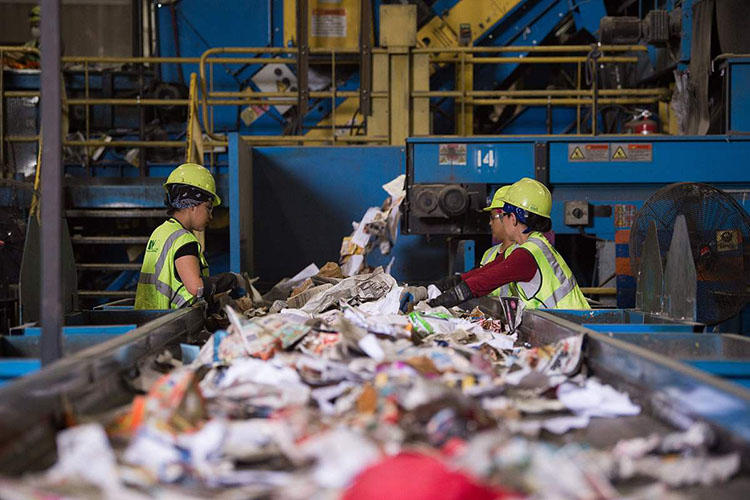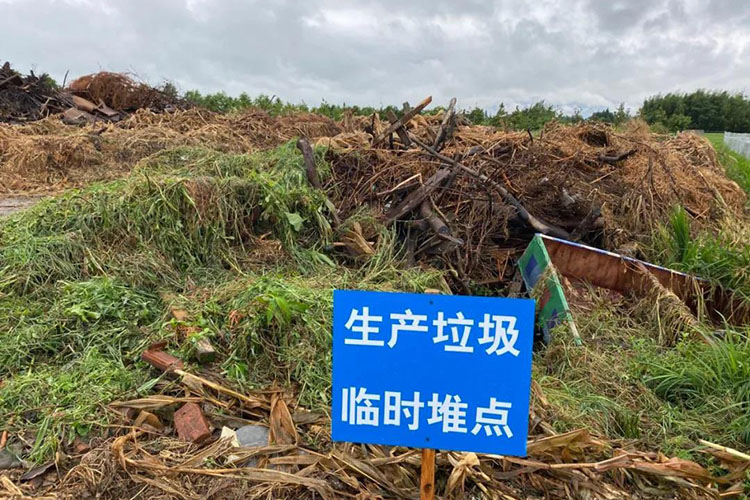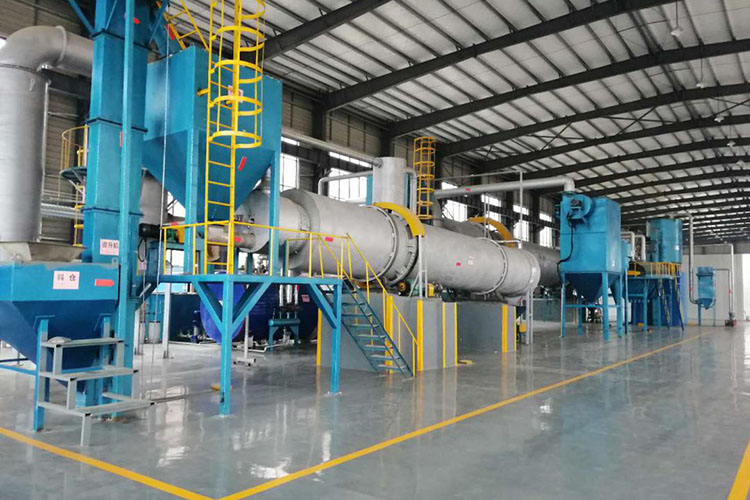The treatment of organic solid waste is an important part of the current environmental protection field. With the acceleration of urbanization and the improvement of people's living standards, the amount of organic waste generated continues to increase. In order to effectively reduce environmental pollution and achieve waste resource utilization, various organic solid waste treatment equipment has emerged. These devices are specifically designed to process different types of organic waste, helping to transform them into valuable resources such as fertilizers, energy, etc.
Firstly, kitchen waste is one of the most common organic solid wastes in urban life. It is mainly composed of food residues, fruit peels, vegetable leaves, etc., with high moisture content and easy spoilage. Common equipment for processing kitchen waste includes anaerobic fermentation equipment, composting equipment, and kitchen waste shredders. Through anaerobic fermentation equipment, kitchen waste can be decomposed into biogas, which can be used as a clean energy source. And composting equipment converts these organic wastes into nutrient rich compost for agricultural and horticultural activities. The kitchen waste crusher can effectively reduce volume and facilitate further processing.

Secondly, agricultural waste is also an important part of organic solid waste treatment. With the development of agricultural production, a large amount of crop straw, fallen leaves, fruit and vegetable waste, and livestock manure are produced. In the past, these wastes were usually disposed of through open burning or random stacking, which not only caused air pollution but also wasted valuable organic resources. Now, with modern organic solid waste treatment equipment such as straw crushers, organic fertilizer production equipment, composting equipment, etc., these agricultural wastes can be efficiently utilized. For example, crop straw can be used for biomass energy production after being crushed, becoming a renewable energy source. Livestock manure is transformed into organic fertilizer through fermentation and composting, enhancing soil fertility.
Garden waste mainly comes from urban greening, horticultural activities, and forestry production. The amount of pruning branches, mowing grass, and shedding leaves each year is quite considerable. If not dealt with in a timely manner, these organic wastes can easily accumulate and breed pests, affecting environmental hygiene. Equipment for processing garden waste, such as crushers and composting equipment, can crush large blocks of tree branches, leaves, and other materials into compost, forming high-quality organic fertilizers for landscaping or agricultural production. After appropriate treatment, garden waste can also be used to produce biomass fuel, further achieving waste resource utilization.

In addition to organic waste in daily life and agricultural production, sludge is also a key focus of organic solid waste treatment. Sludge is a byproduct generated during urban and industrial wastewater treatment processes, typically containing a large amount of organic matter and moisture. Untreated sludge may contain harmful substances, and direct discharge can contaminate soil and water sources. Sludge dewatering machines and anaerobic digestion equipment are key tools for treating sludge, which can effectively reduce the volume of sludge and generate energy through anaerobic digestion. In addition, the sludge processed by composting can also be used as organic fertilizer and applied in the agricultural field.
Food processing waste refers to the waste generated during the food processing process, such as vegetable peels, meat residues, distillers' grains, etc. This type of waste contains high levels of organic matter and can be treated through composting or anaerobic fermentation equipment. Through composting, food processing waste can be converted into organic fertilizers, improving soil structure. Anaerobic fermentation equipment decomposes waste to produce biogas, which is used for power generation or heating.

In summary, organic solid waste treatment equipment can efficiently process different types of organic waste, transforming waste that is originally harmful to the environment into resources that are beneficial to society. Whether it is kitchen waste, agricultural waste, garden waste, sludge, or food processing waste, they can all be recycled and reused through appropriate equipment and technology. This not only effectively reduces the impact of solid waste on the environment, but also provides new avenues for resource recycling and the development of green energy. In the future, with the continuous advancement of technology, organic solid waste treatment equipment will become more intelligent and efficient, making greater contributions to achieving sustainable development goals.
Yongle Environmental Protection is mainly engaged in the research and development, production and sales of complete sets of technical equipment for organic solid waste disposal and comprehensive utilization. Production and manufacturing, domestic waste treatment equipment, tire pyrolysis equipment, medical waste disposal equipment, hazardous waste disposal equipment, and achieve efficient and comprehensive utilization of resources through independently developed low-temperature anaerobic pyrolysis equipment technology solutions.
Tags:What materials can organic solid waste treatment equipment handle,Organic solid waste treatment equipment,YONGLE GROUP
 Latest news
Latest news


























